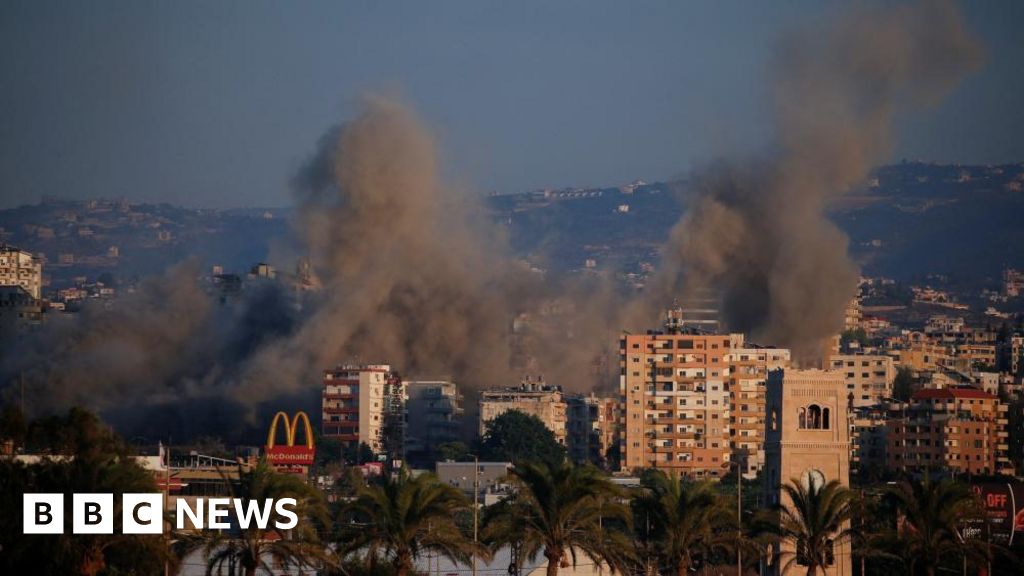
US and allies call for 21-day ceasefire across Lebanon-Israel border
Posted on 09/26/2024

Allies including the US, UK and EU have called for a temporary ceasefire in Lebanon, following an escalation in fighting between Israel and Hezbollah.
The 12-strong bloc proposed an immediate 21-day pause in fighting "to provide space for diplomacy towards the conclusion of a diplomatic settlement" and a ceasefire in Gaza.
In a joint statement, they said the hostilities were "intolerable" and presented an "unacceptable risk of a broader regional escalation" that was neither in the interest of the people of Israel or Lebanon.
It comes after Israel’s military chief told troops that extensive air strikes in Lebanon targeting Hezbollah could pave the way for them to “enter enemy territory”.
The remarks by Lt Gen Halevi are the plainest indication yet from a senior figure that a ground invasion into Lebanon may be imminent.
The joint statement was signed by the US, Australia, Canada, the European Union, France, Germany, Italy, Japan, Saudi Arabia, the United Arab Emirates, the United Kingdom and Qatar.
It followed a meeting of world leaders at the UN General Assembly in New York.
A joint statement by US President Biden and French President Emmanuel Macron said it was time for a settlement "that ensures safety and security to enable civilians to return to their homes".
The current hostilities threaten "a much broader conflict, and harm to civilians", they said.
"We therefore have worked together in recent days on a joint call for a temporary ceasefire to give diplomacy a chance to succeed and avoid further escalations across the border."
President Biden briefly spoke to reporters at the White House on Wednesday evening, saying there is "significant support from Europe as well as the Arab nations … it’s important the war does not widen".
Earlier in New York, UN Secretary-General Antonio Guterres urged an immediate ceasefire, and said "hell is breaking loose".
Lebanese PM Najib Mikati said his country is "facing a blatant violation of our sovereignty and human rights through the brutal practices of the Israeli enemy".
He added he hoped he could leave the UN session with a "serious solution" to "put pressure on Israel to achieve an immediate ceasefire on all fronts". Asked by Reuters if a ceasefire can be reached soon, he responded: "Hopefully, yes."
Also speaking earlier, Israel's envoy to the UN, Danny Danon, said it was grateful for diplomatic efforts to avoid escalation but would use "all use all means at our disposal, in accordance with international law, to achieve our aims".
He said Israel "does not seek a full-scale war", and has made its desire for peace "clear".
Mr Danon added that Israeli PM Benjamin Netanyahu will arrive in New York on Thursday, have bilateral meetings later that day and speak at the General Assembly the following morning.
The 12-strong bloc proposed an immediate 21-day pause in fighting "to provide space for diplomacy towards the conclusion of a diplomatic settlement" and a ceasefire in Gaza.
In a joint statement, they said the hostilities were "intolerable" and presented an "unacceptable risk of a broader regional escalation" that was neither in the interest of the people of Israel or Lebanon.
It comes after Israel’s military chief told troops that extensive air strikes in Lebanon targeting Hezbollah could pave the way for them to “enter enemy territory”.
The remarks by Lt Gen Halevi are the plainest indication yet from a senior figure that a ground invasion into Lebanon may be imminent.
The joint statement was signed by the US, Australia, Canada, the European Union, France, Germany, Italy, Japan, Saudi Arabia, the United Arab Emirates, the United Kingdom and Qatar.
It followed a meeting of world leaders at the UN General Assembly in New York.
A joint statement by US President Biden and French President Emmanuel Macron said it was time for a settlement "that ensures safety and security to enable civilians to return to their homes".
The current hostilities threaten "a much broader conflict, and harm to civilians", they said.
"We therefore have worked together in recent days on a joint call for a temporary ceasefire to give diplomacy a chance to succeed and avoid further escalations across the border."
President Biden briefly spoke to reporters at the White House on Wednesday evening, saying there is "significant support from Europe as well as the Arab nations … it’s important the war does not widen".
Earlier in New York, UN Secretary-General Antonio Guterres urged an immediate ceasefire, and said "hell is breaking loose".
Lebanese PM Najib Mikati said his country is "facing a blatant violation of our sovereignty and human rights through the brutal practices of the Israeli enemy".
He added he hoped he could leave the UN session with a "serious solution" to "put pressure on Israel to achieve an immediate ceasefire on all fronts". Asked by Reuters if a ceasefire can be reached soon, he responded: "Hopefully, yes."
Also speaking earlier, Israel's envoy to the UN, Danny Danon, said it was grateful for diplomatic efforts to avoid escalation but would use "all use all means at our disposal, in accordance with international law, to achieve our aims".
He said Israel "does not seek a full-scale war", and has made its desire for peace "clear".
Mr Danon added that Israeli PM Benjamin Netanyahu will arrive in New York on Thursday, have bilateral meetings later that day and speak at the General Assembly the following morning.
Comments( 0 )
0 0 0
0 0 2

:quality(70)/cloudfront-us-east-1.images.arcpublishing.com/adn/JF6FH7DLYVBLZMKLMUUM52A2CI.JPG)




















